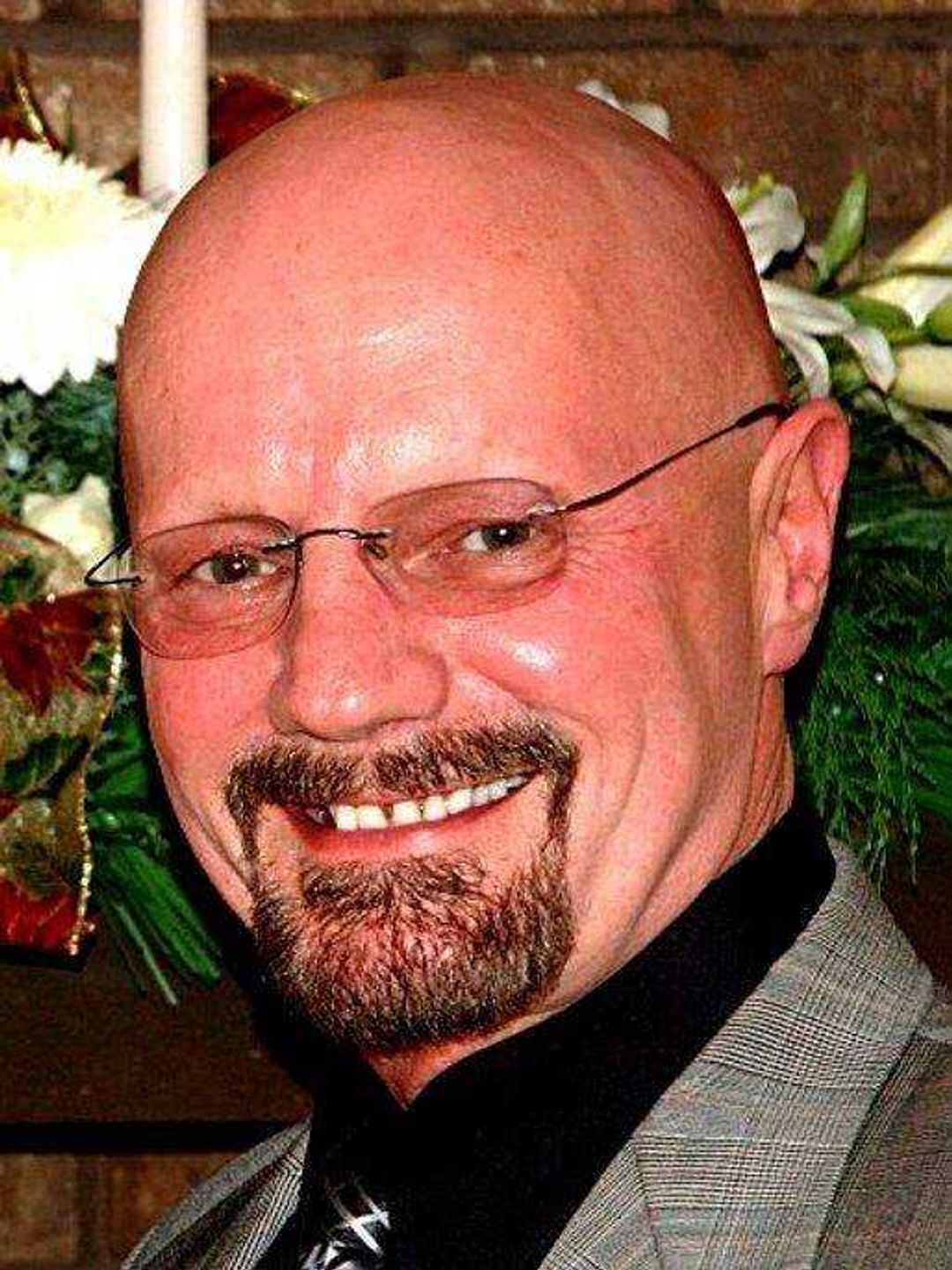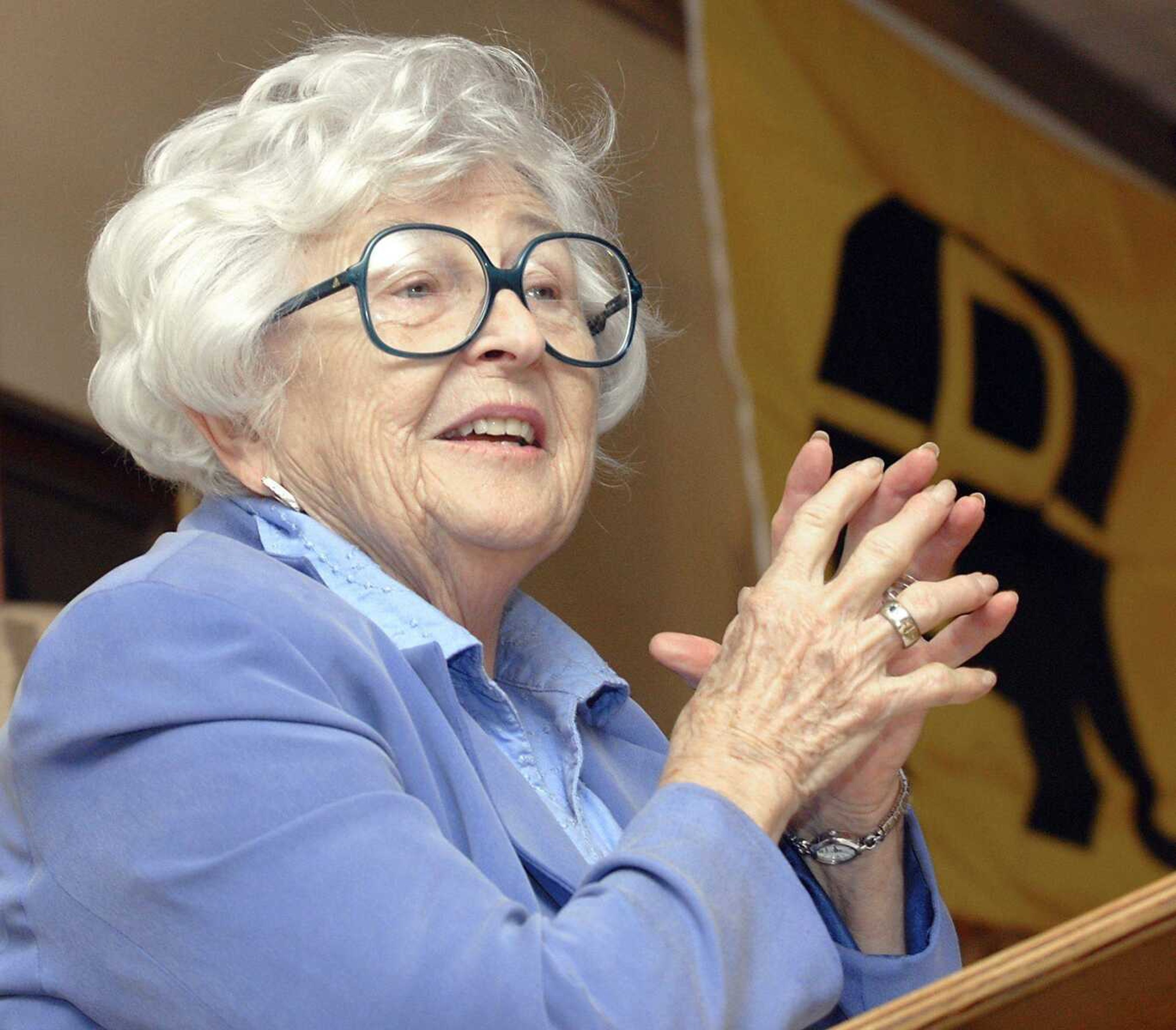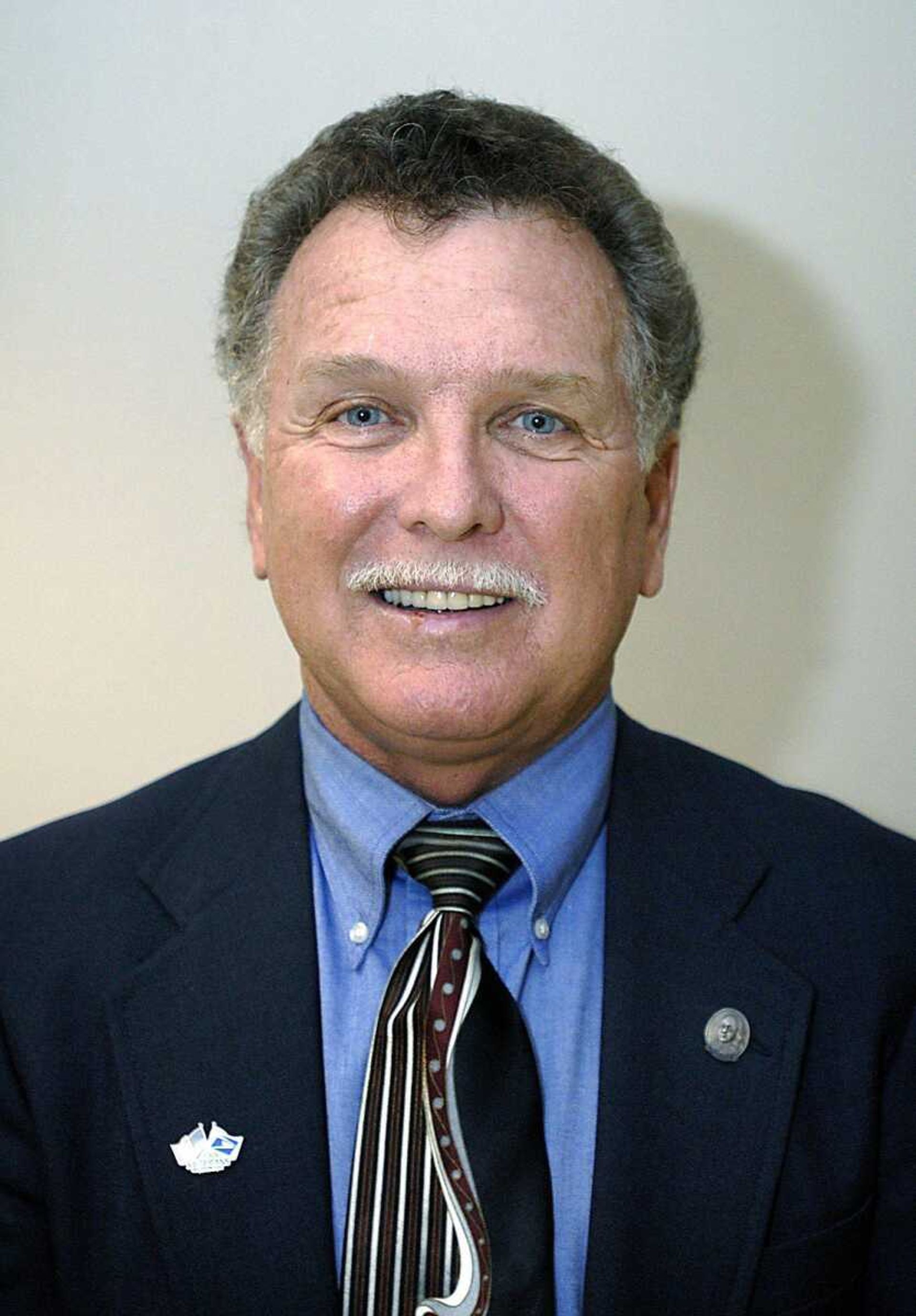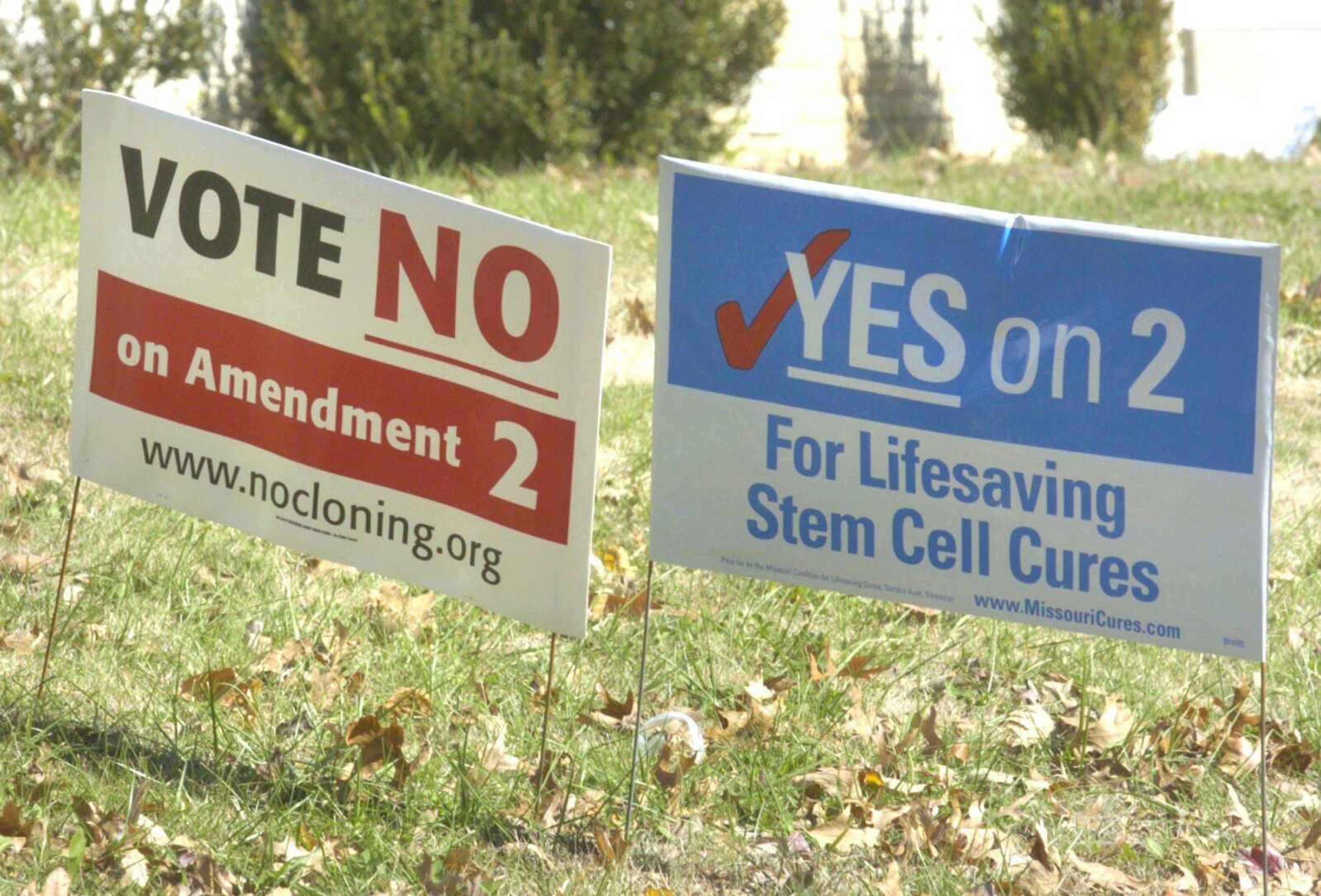Editor's note: Cape Girardeau voters will select a new state representative in a special election Feb. 5. This is the second in a series of articles designed to familiarize voters with the three candidates' stands on some of the important issues that the winner will face during the legislative session, which is already underway.
By Rudi Keller
Southeast Missourian
The hard-fought 2006 Missouri election over stem-cell research settled little.
Opponents of the use of embryos and cloning techniques continue to attack the measure, known as Amendment 2. The latest effort includes an initiative they hope to get on the November ballot. Supporters of the research remain vigilant, raising large sums to protect Amendment 2 both in court and among voters, and there's a well-funded political action committee able to funnel money to candidates from both the Republican and Democratic parties.

Amendment 2 passed statewide with 51 percent of the vote. In Cape Girardeau County, voters rejected Amendment 2 with 63 percent casting ballots against it.
In the special election set for Feb. 5 in Cape Girardeau's 158th District of the Missouri House, all three candidates agree that using embryos to create stem-cell lines for research should be illegal.
Democrat Mike Keefe also opposes the use of cloning techniques to create stem cells for research, Republican Mary Kasten said she needs more information to make a decision and Libertarian Steve Kinder would allow such research but opposes any attempt to create a living human from an embryonic clone.
The Cures Without Cloning Committee, from its offices in St. Louis, wants to place a state constitutional amendment on the November ballot that would bar the use of laboratory techniques developed for cloning to create material for stem-cell research. No petitions are being circulated until a court case over the language that would appear on the ballot has been resolved.
"We are continuing to train volunteer circulators in every area of the state," said Jaci Winship, a spokeswoman for the effort. "We have 1,800 people we are preparing to go forward."

The Missouri Coalition for Lifesaving Cures, which successfully pushed Amendment 2, is prepared to fight the initiative campaign and the potential vote in the fall election. The committee raised more than $1 million in the last three months of 2007, much of it from a few large donors giving in excess of $100,000 each, and has $530,000 on hand.
"We are dedicated to making sure that vote is upheld and protected," said Connie Farrow, spokeswoman for the coalition.
And the Supporters of Health Research and Treatments Committee, a PAC set up to provide money to candidates that support embryonic stem-cell research, has $156,000 on hand. During the fall, it took nearly $400,000 in contribution refunds caused by the reimposition of donation limits and in turn sent the money to committees able to provide large donations.
Among those refunds was nearly $250,000 from Gov. Matt Blunt's re-election campaign and almost $24,000 from Attorney General Jay Nixon's campaign. The committee donated $250,000 to the Republican Governor's Association and almost $24,000 to the Democratic Governor's Association.
Both sides of the issue have local supporters, ready to help organize grassroots efforts both for and against this year's initiative campaign.

Researchers in labs throughout the United States and the rest of the world are pursuing four basic paths to find cures from stem cells.
The first two paths, which generate little if any controversy, use adult stem cells or attempts to manipulate adult cells to act like stem cells.
The other two research tracks are more controversial, generating religious, moral and ethical opposition based on the view that the work involves the destruction of human life.
"That is the same thing as taking a child and killing them at so many days of age," said Myrna Etheridge of Cape Girardeau, one of the volunteers ready to gather signatures for Cures without Cloning.
While a candidate's position on embryonic research or cloning techniques won't be the decisive factor in her vote, Etheridge said it will be a major part of her choice.
On the other side, equally intense feelings, also based on religious, moral and ethical grounds, take the view that an early-stage embryo is not the same as a fully-formed human or fetus in the womb. The potential for cures and treatments for spinal cord injuries and debilitating and chronic diseases is the higher ethical pursuit.
"I would defy anyone who has a family member who has one of these diseases to oppose this research," said Michael McGuire, a Cape Girardeau lawyer. "We are trying to create an atmosphere where people are safe to pursue this research."
McGuire said he is a diabetic and supports the research in case his children also develop the disease.
He, too, said he won't make his Feb. 5 decision based solely on a candidate's stance on stem cells, but it will weigh heavily in the choice.
The controversial research uses embryos created by in vitro fertilization or by what is known scientifically as somatic cell nuclear transfer, or SCNT. The SCNT technique uses an unfertilized egg. The nucleus is removed and replaced with the genetic material from a fully developed cell. The technique can be used to create a clone, most famously Dolly the sheep, or, once the egg has started to multiply, scientists can create a line of stem cells for research.
There is no room, ethically, for any research that destroys embryonic tissue, said Keefe, the Democrat in the 158th District race.
"I think we can get the same results with skin cells and do the same research and get the same positive benefits," he said.
The state should not fund any research into embryonic or SCNT research, Keefe said.
Republican Kasten, whose late husband was a physician, said she's against any use of embryos for research. She's not as certain when it comes to research involving SCNT. "Both sides have an issue that needs addressing," she said. "I am certainly for trying to search out for reliable research. I don't know if it is pinned down enough to know that my position would be clear."
For Libertarian Kinder, a pharmacist, the issue revolves around whether an egg has been fertilized, which makes it a living being, or not. "I feel that morally, religiously and intellectually ... I just believe that it is a human being at any stage of development," Kinder said.
When SCNT is used, fertilization is not part of the process. "If it is the somatic method, to create organs or spinal cords, I am totally in favor," he said.
But he wants a strong ban on attempting to create a living cloned human, he said. "I don't believe in creating any life from any method other than the way it was done since the end of time."
rkeller@semissourian.com
335-6611 extension 126
Have a comment?
Log on to semissourian.com
Connect with the Southeast Missourian Newsroom:
For corrections to this story or other insights for the editor, click here. To submit a letter to the editor, click here. To learn about the Southeast Missourian’s AI Policy, click here.







